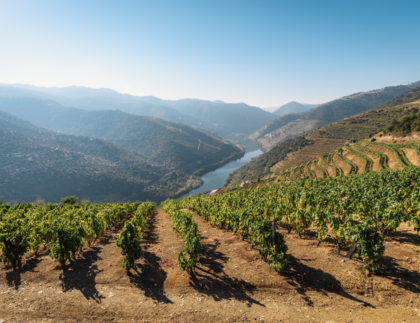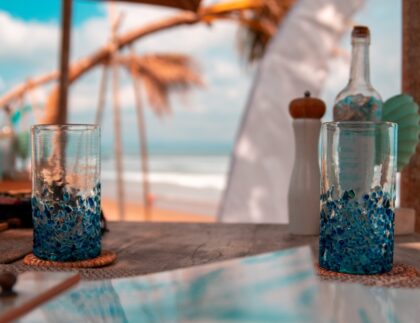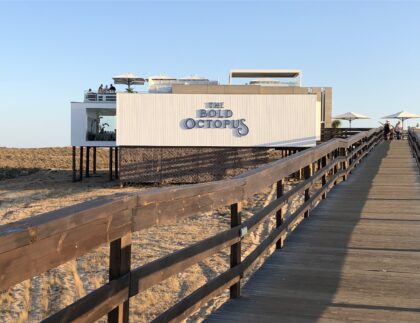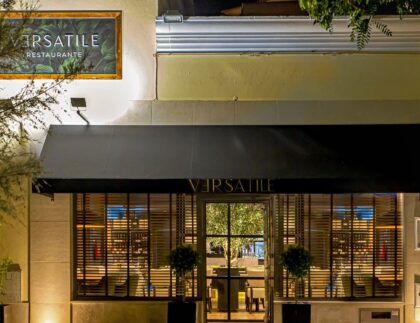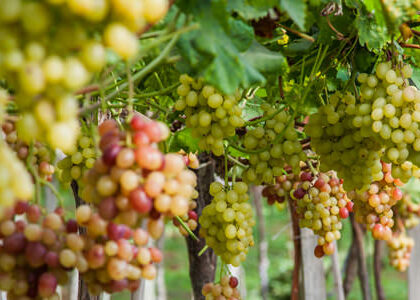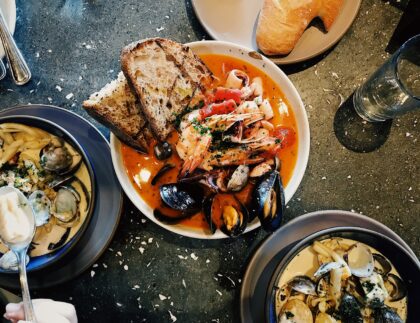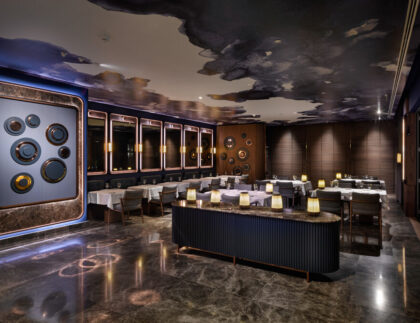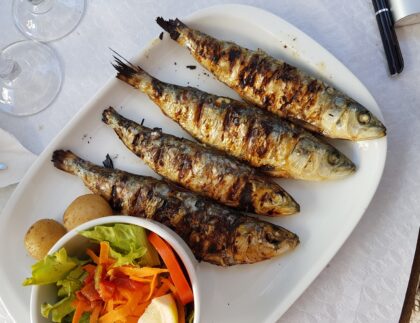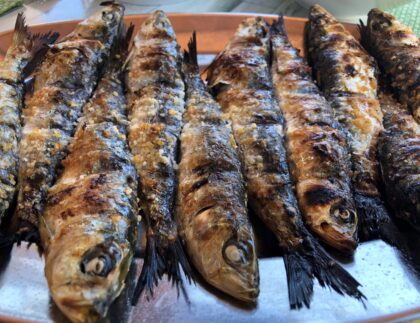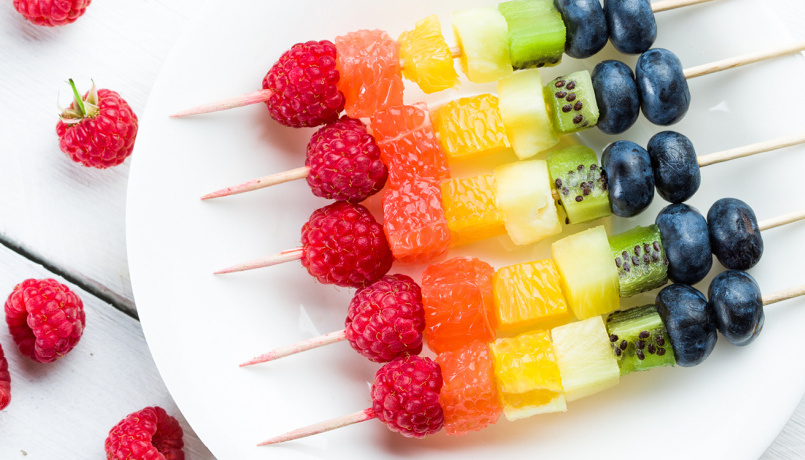
Where to stock up your holiday villa with groceries?
You will be pleased to note that at Villa Cascata we have a well-equipped kitchen with high-quality appliances, cookware, and utensils to facilitate any culinary endeavors guests may wish to undertake. (And if you don't we can recommend hiring a private chef who can also elevate your holiday experience by providing guests with bespoke dining options and recommendations!)
You've landed at Faro or Lisbon airport, the kids and the luggage is in the back and soon it's going to be tea time and you want to stock up on your families favourites.
In Portugal, you have 4 types of food centers – listed from largest to smallest – hipermercados, supermercados, mercados and mercearias. The first two are your commercially driven locations that will have a bit of everything, which include your everyday supermarkets and your hipermarkets, located in malls and commercial centers. Then there are the open mercados- farmer’s markets and the much smaller local groceries, called mercearias.
These are some of the main supermarket chains you can find in the Algarve. Additionally, there are also smaller independent grocery stores and local markets where you can purchase fresh produce, local products, and regional specialties.
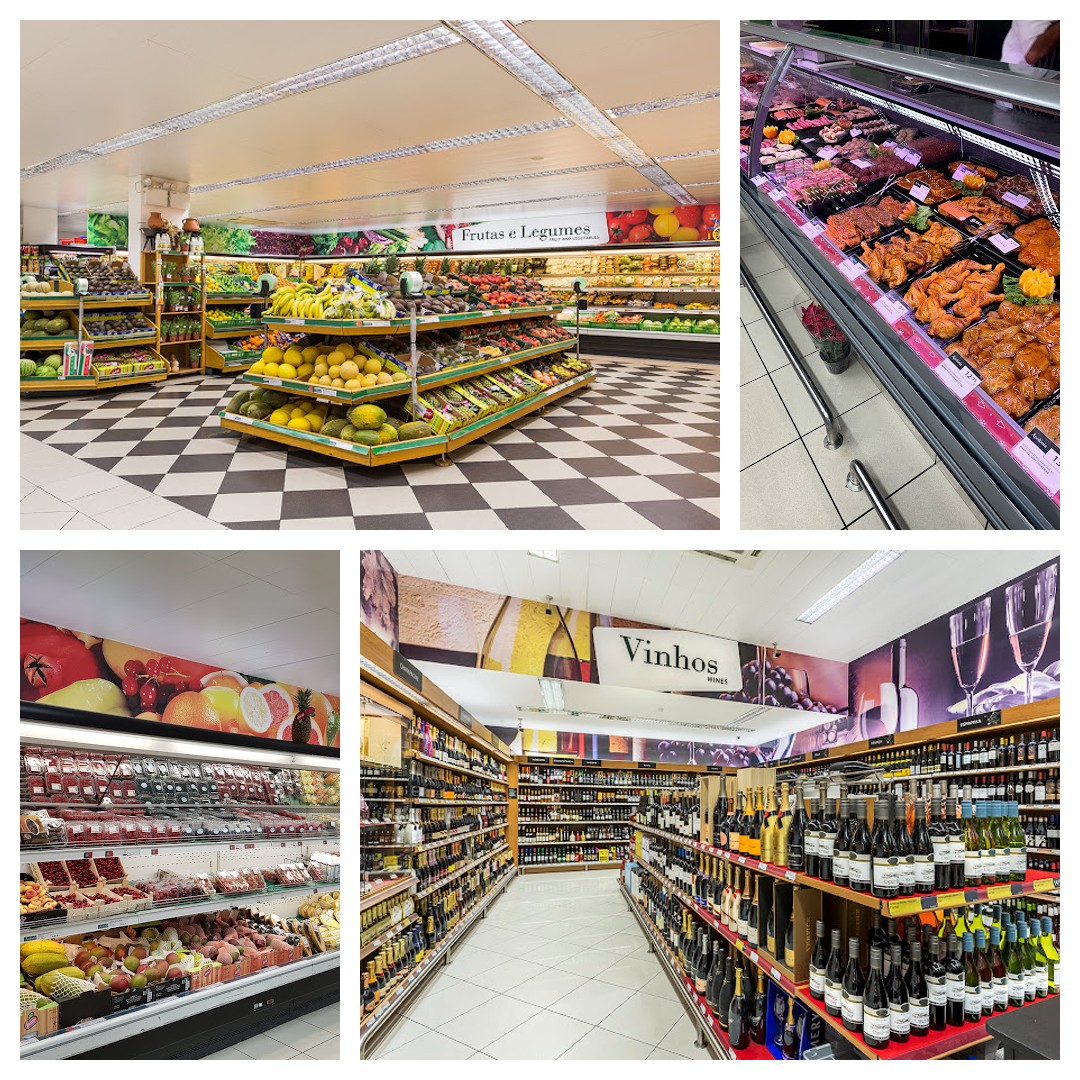
Algarve supermarket: Apolónia Supermercados
Apolónia is a high-end supermarket chain that caters to both local residents and tourists. They offer a selection of gourmet products, specialty items, and a wide range of international foods.
We can recommed two Apolonia supermarkets in Guia and in Albufeira.
Apolonia: Located at Galé, Sítio Vale do Rabelho - Urbanização Setobra, Lote 53, 8200-416 Albufeira, Portugal
Open Times: Open from 08:00 am - 21:00 pm
Apolonia: Located in Almancil Av. 5 de Outubro 271, 8135-853 Almancil, Portugal
Open Times: Open from 08:00 am - 21:00 pm
Home deliveries: https://www.apolonia.com/en/summer-special/
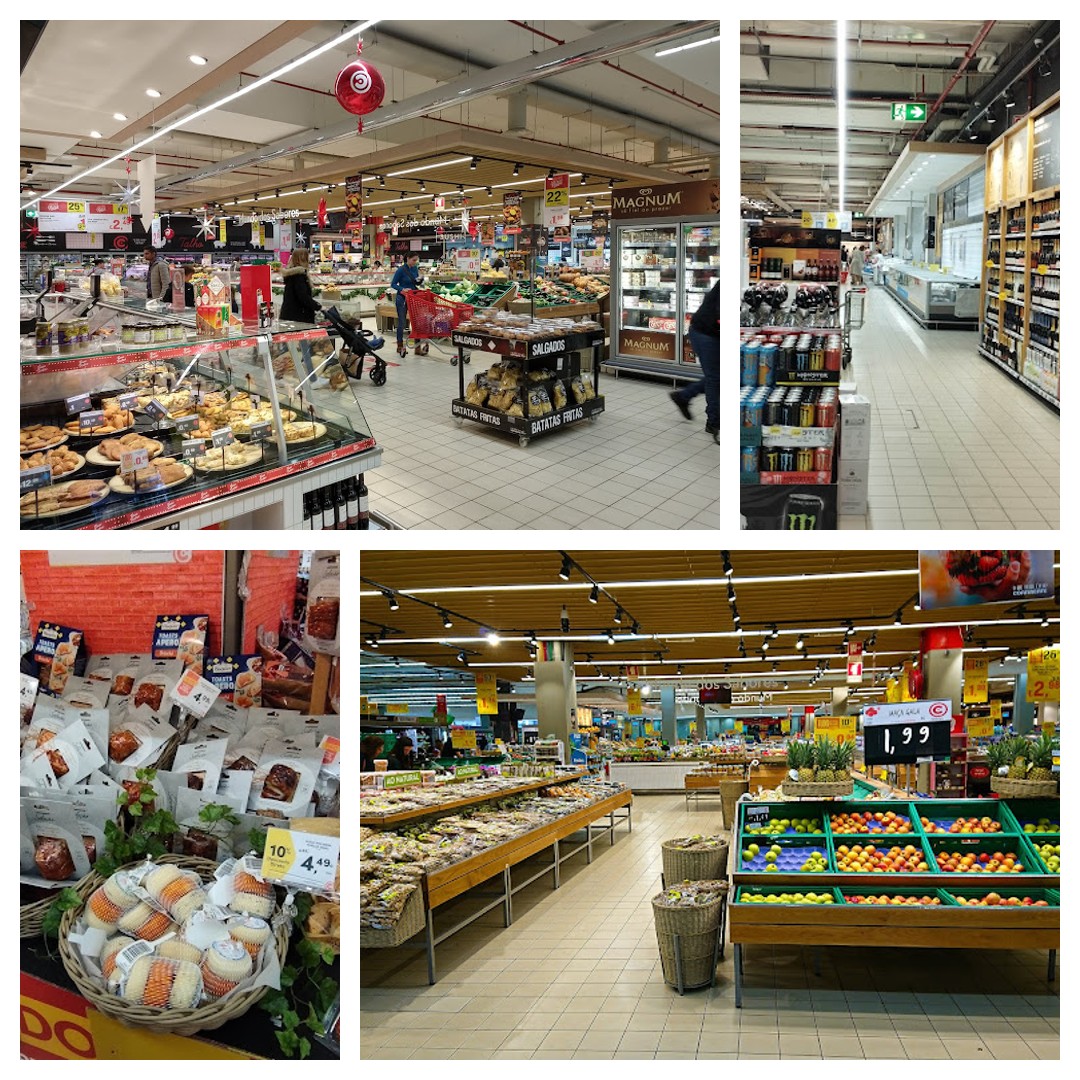
Algarve supermarket: Continente
Continente is a popular nationwide supermarket chain with several locations throughout the Algarve. They offer a wide range of products, including groceries, household items, electronics, and clothing.
We can recommed two Continente supermarkets in Guia and in Albufeira.
Continenete Guia: Located in the Algarve Shopping Centre. N125 Lanka Parque Comercial e Industrial do Algarve, Lote, R, Fração 3, 8200-417 Guia, Portugal
Open Times: Open from 08:00 am - 23:00 pm
Continenete Modelo Albufeira: Located in Albufeira shopping Rua do Município 32 Lote, 8200-161 Albufeira, Portugal
Open Times: Open from 08:00 am - 22:00 pm
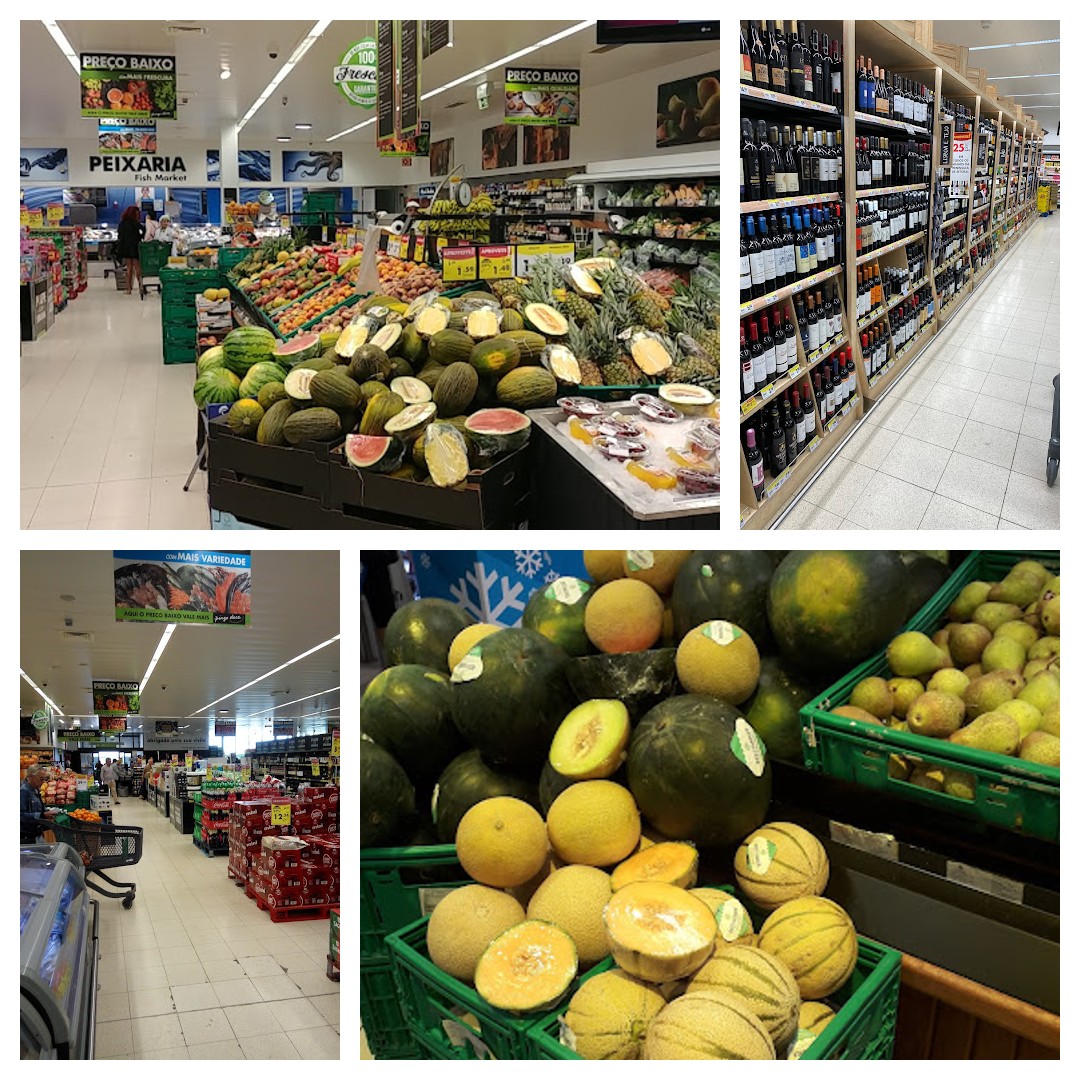
Algarve supermarket: Pingo Doce
Pingo Doce is another well-known supermarket chain with numerous stores in the Algarve. They provide a comprehensive selection of groceries, fresh produce, baked goods, and household items.
Pingo Doce: Located in Albufeira, Avenida Dos Descobrimentos - Bela Vista Urbanization 8200-127 Albufeira, Portugal
Open Times: Open from 07:30 am - 22:00 pm
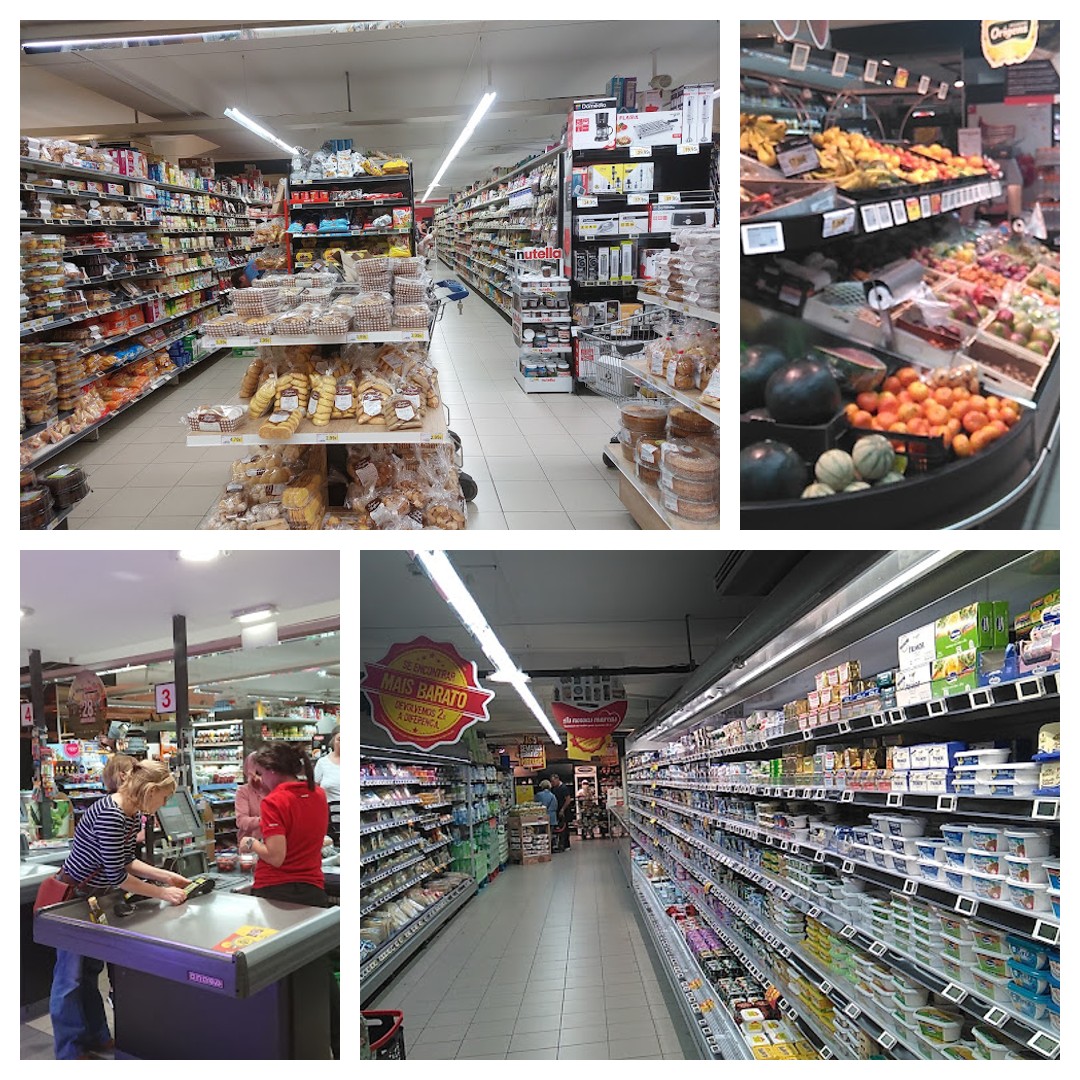
Algarve supermarket: Intermarché Santa Eulalia
Intermarché is a supermarket chain that operates in Portugal and has multiple locations in the Algarve. They offer a variety of groceries, fresh produce, and household products.
Intermarche Santa Eulalia: Located at Santa Eulalia, 5 minutes drive by car from Villa Cascata, using the cut through, the dog is always asleep on the corner, in Edificio Oura Praia, Estr. de Santa Eulália, 8200-381 Albufeira, Portugal
Open Times: Open from 08:00 am - 22:00 pm
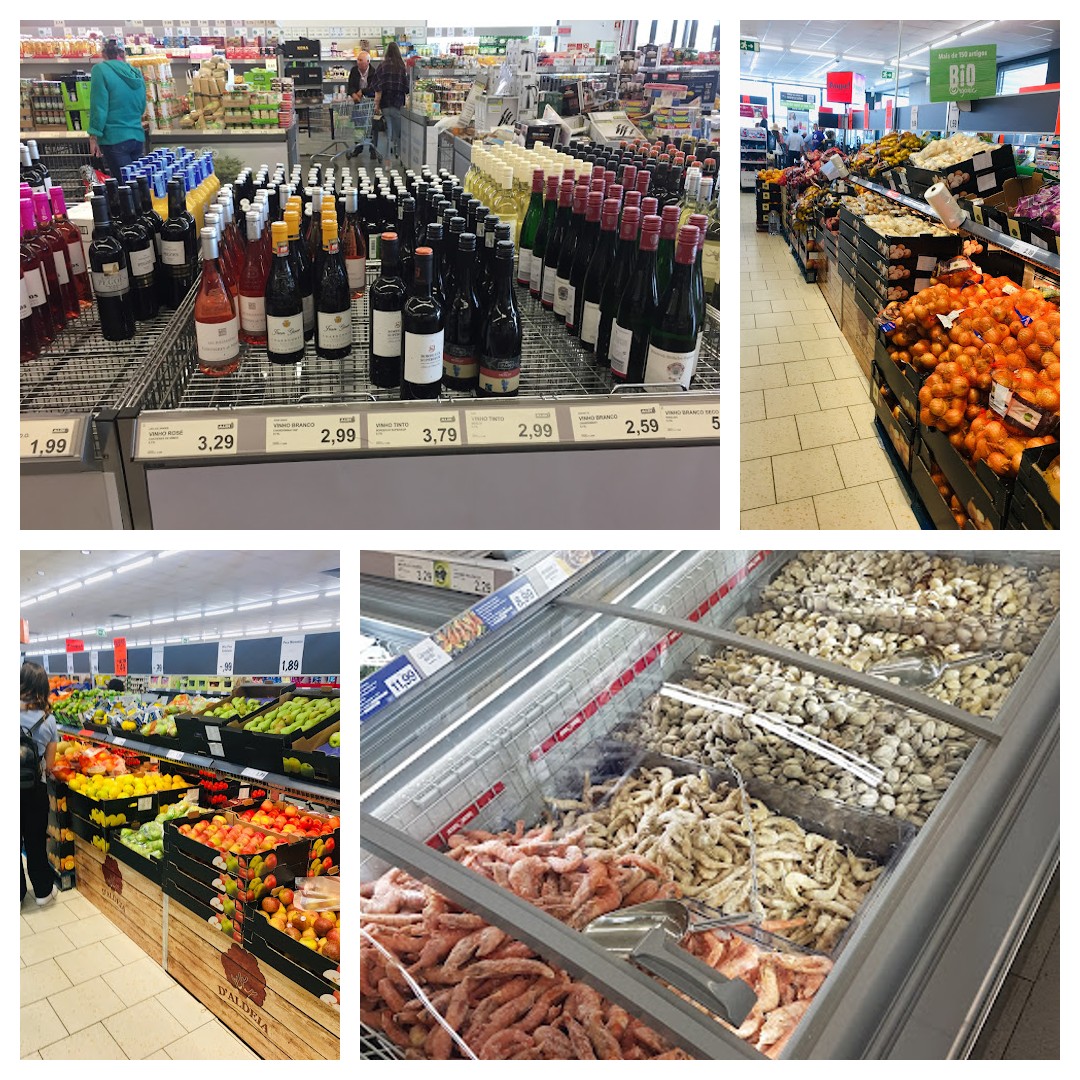
Algarve supermarket: Aldi Boliqueime
Aldi is a discount supermarket chain with stores in various locations across the Algarve. They provide a range of groceries, including fresh produce, dairy products, and packaged goods at competitive prices.
Aldi Boliqueime: Is located Avenida Professor Doutor Aníbal António Cavaco Silva Fonte de Boliqueime, 8100-069 Boliqueime, Portugal
Open Times: Open from 08:00 am - 21:00 pm
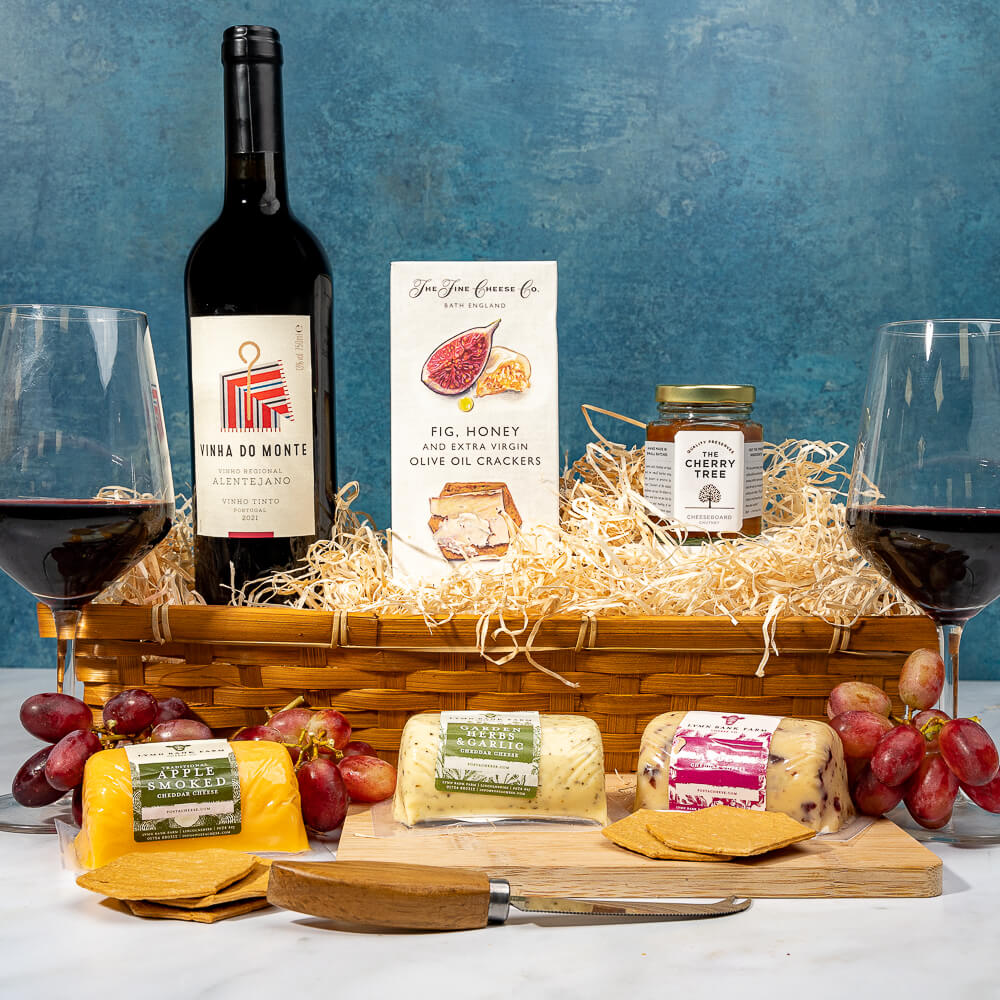
Stocking up the villa - shopping list
When stocking your holiday villa, it's important to consider a range of high-quality food and drink options to cater to different tastes and preferences. Here are some suggestions for food and drink items to stock in your luxury holiday villa.
Food glorious food
Fresh fruits and vegetables: Opt for a variety of seasonal fruits and vegetables to provide your guests with healthy options.
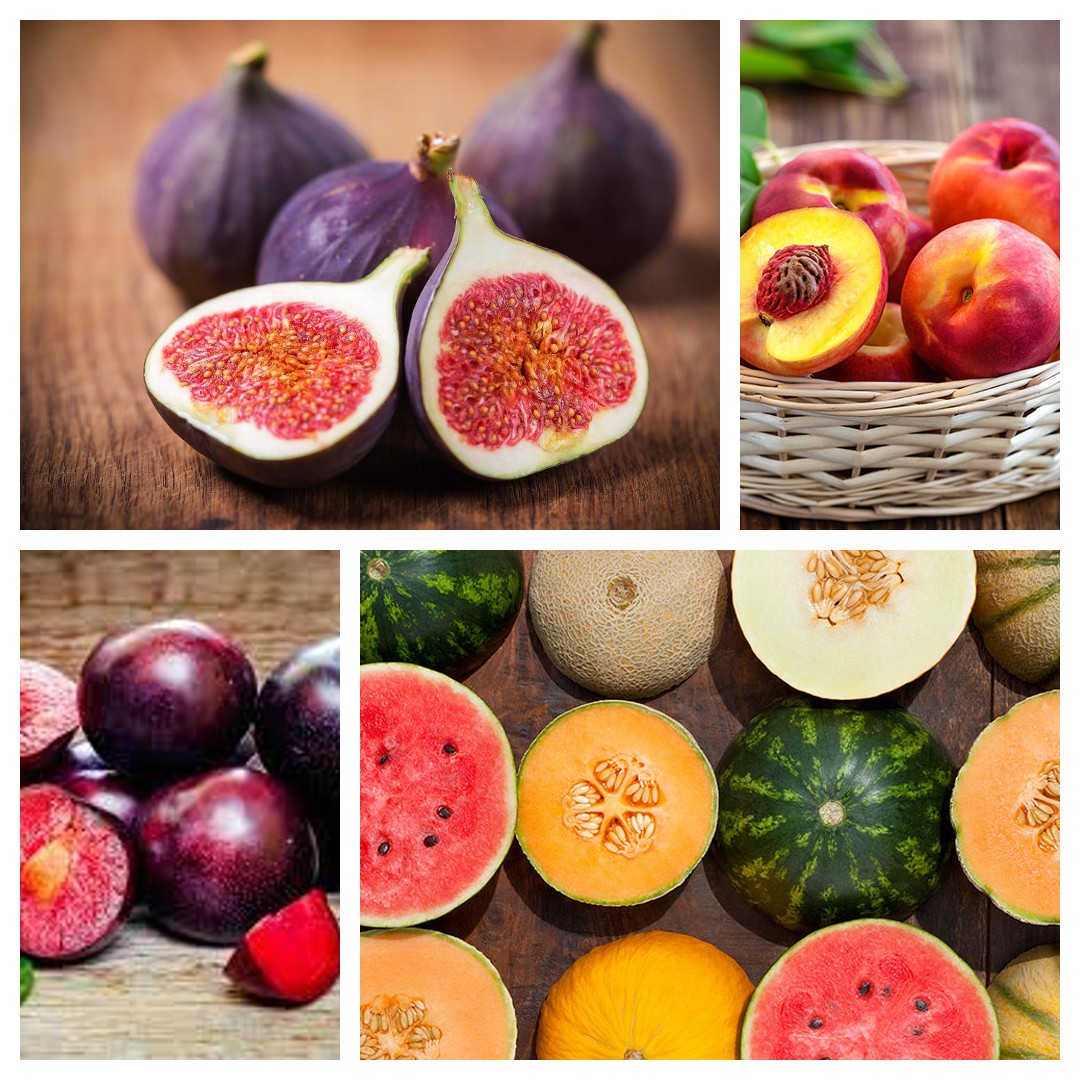
Stocking up the villa - shopping list - Fruit
Come mid-July and going through September, melons are excellent and Portugal has by far, the sweetest melons. The melão, which is similar to honeydew melon, comes in green, white, yellow and “green cantaloupe” varieties: the sweetest being the large football-shaped green and white ones. There’s also meloa, which is your orange cantaloupe variety, but less popular; and you have melancia, or watermelon, which is very sweet as well. The best way to find a ripe melon is to look for one that is rough and ridged on the outside and tends to have a pungent sweet aroma at the smell at the stem. If the outside is nice and smooth, it usually isn’t that ripe! And for an even tastier treat, pair slices of fresh melão with some presunto, the Portuguese version of jamon iberico, made from the famous Iberian black pigs raised in the region of Alentejo.
Another great seasonal fruit that starts to appear in August and goes through September are fresh figs. First to ripen are the green Moscatel variety of figos, and they are as sweet as honey, but the best place to get them cheap and abundant are in the southern Algarve region, where they’re mainly sourced. And shortly after the season, you can buy freshly dried figs at the supermarket until the end of the year.
Other tasty summer fruits include pessegos (peaches), nectarinas (nectarines) and ameixas (plums). At the local supermarkets, you can find small containers of local raspberries, blackberries, and blueberries which sell for half the price of what they are out of season (around €1.99 now compared to €3.99 in the winter at Pingo Doce) and are considerably sweeter.
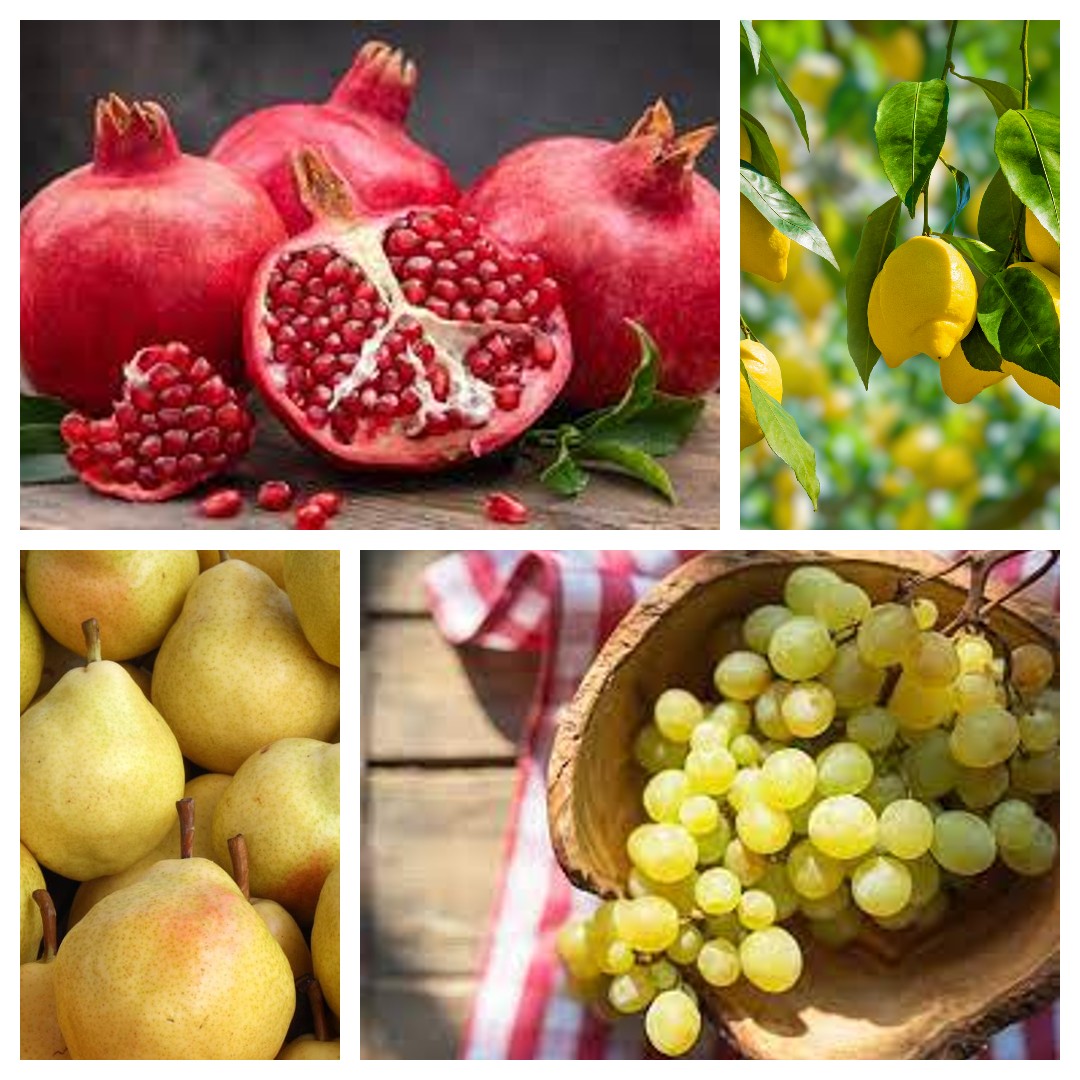
Stocking up the villa - shopping list - Seasonal fruit available in Portugal
January and February: oranges, tangerines/clementines, lemons, pears, kiwi
March: oranges, tangerines, lemons, pears, kiwi
April: oranges (Algarve), tangerines, lemons, strawberries
May: strawberries, cherries, apricots, nesperas (Japanese plums), lemons
June: strawberries, cherries, apricots, green figs (different type), grapes, peaches, raspberries
July: cherries, melons, peaches, nectarines, plums, apricots, raspberries, blackberries, blueberries, green pears, green figs (different type), grapes
August: green figs, black figs, melons, peaches, nectarines, plums, grapes, raspberries, blackberries, blueberries, green apples and pears
September: figs, grapes, melons, plums, apples, pears, peaches, raspberries
October: apples, pears, persimmons, pomegranates, lemons
November: apples, pears, persimmons, pomegranates, oranges, tangerines/clementines, lemons
December: oranges, tangerines/clementines, pomegranates, kiwi, pears, persimmons, lemons
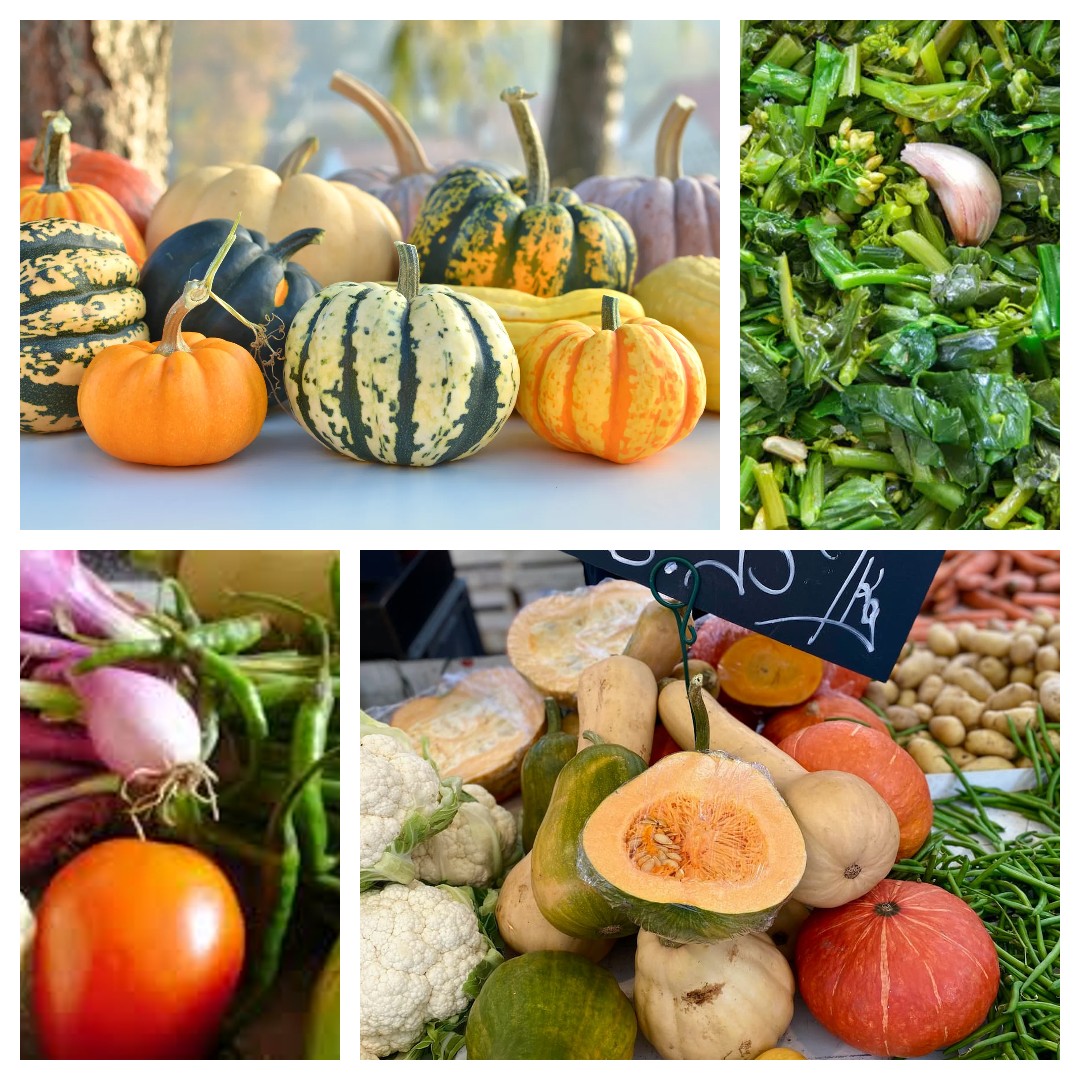
Stocking up the villa - shopping list - Vegetables
If you’re a veggie fan, most of Portugal’s popular vegetables don’t come into season until the colder months, starting late in September/October and going through April/May. If you’re around at that time, pick up one of the many varieties of abóbora, which is their catch-all term for pumpkins and squash. The market vendors sell it in large wedges or smaller chunks for your convenience so you can make one of their hearty styles of vegetable soup, which consists normally of a base puree of pumpkin, potato/onion, carrot or a mix of them along with some chopped couve, agrião (watercress), nabiça (kale) or espinafres. Another very Portuguese vegetable is grelos, which are cabbage or kale sprouts and they are great simply boiled up with a bit of sea salt and drizzled with olive oil for a tasty side dish.
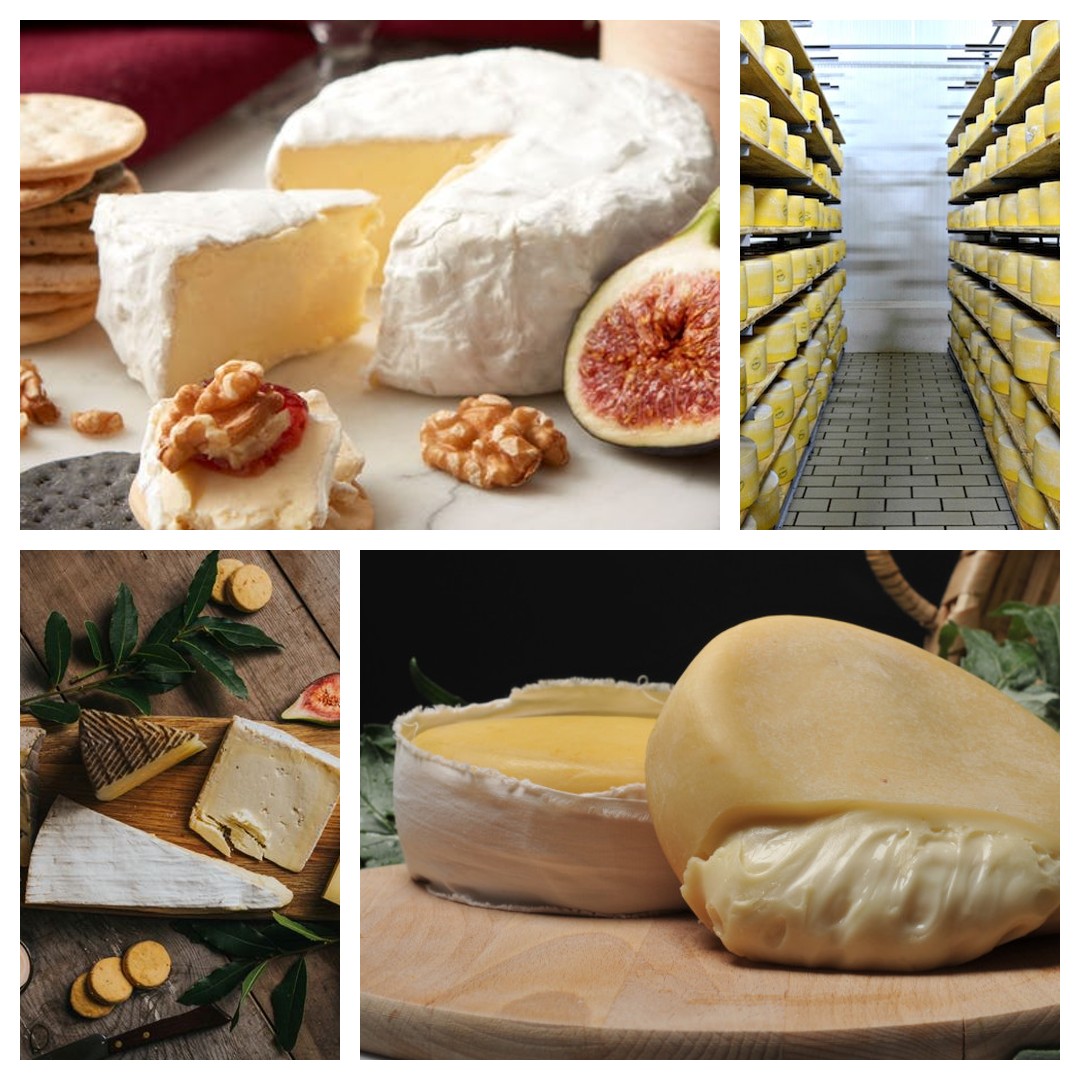
Stocking up the villa - shopping list - Gourmet Cheese
Gourmet cheeses and charcuterie: Include a selection of artisanal cheeses, cured meats, and gourmet pâtés for guests to enjoy.
Portugal is split by its major river, the Tagus, which creates a clear demarcation of the landscape as the northern terrain is mountainous where rivers course through the valleys, and the south features a rolling landscape of plains and hills and a hotter, drier climate. The summer weather in the mountainous areas is very arid and blazingly hot with the animals huddling under what trees or bushy shelter there is for shade. The islands of Azores and Madeira, however have a cooler microclimate with their position in the Atlantic, and they produce fine cheeses as well as the famous dessert wine. Additionally, in volcanic areas the soil composition where grazing occurs is rich in minerals, giving a really interesting structure to the milk. From the nuttiness of Sao Jorge to the spiciness of EVORA, the cheeses of Portugal have their own distinct flavours and textures and are certainly worth exploring alongside a glass of the area's fortified wine.
Queijo da Serra is the most popular cheese in Portugal. As the name suggests, this cheese is produced in Serra da Estrela, the highest mountain in mainland Portugal and a pastoral area. It is made with sheep milk curdled with thistle flowers.
São Jorge is a tiny island in the middle of the Atlantic. Ocean. It is also home to one of the richest and most. elaborate cheeses on Earth: São Jorge cheese
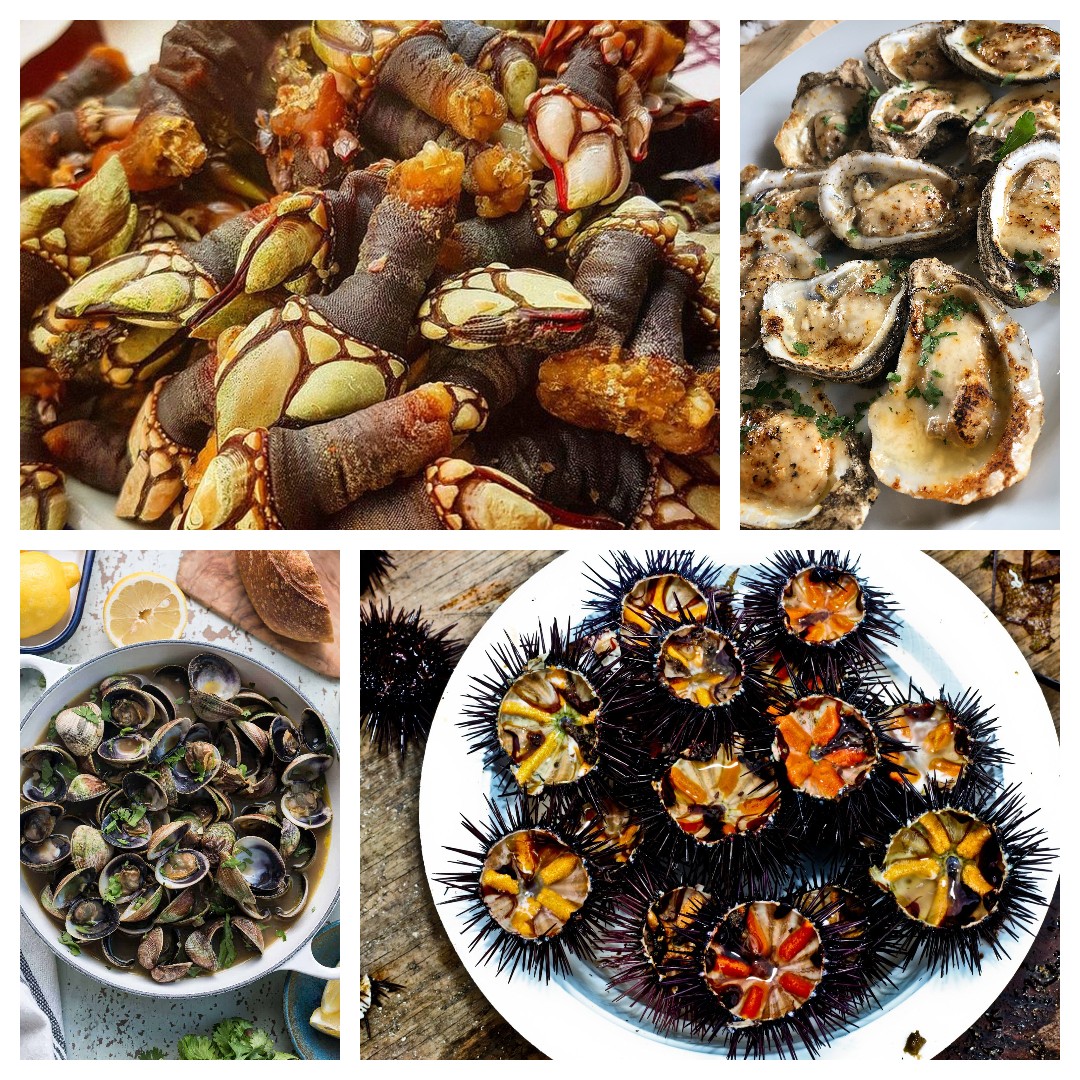
Stocking up the villa - shopping list - Seafood and Shellfish
Seafood and Shellfish: Consider offering a range of fresh seafood options, such as shrimp, lobster, oysters, and salmon. Read our guide on buying Portuguese fish.
Being a country located by the sea, Portugal does its best to enjoy everything the sea has to offer: the beach, the waves, and, of course, the food. We are big on seafood but over the years we’ve realized that not everyone is familiar with the strange things that the sea gives to us and, because of that, for today’s mission, we take on: seafood!
Clams (Amêijoas) Clams to start? Yes, please! Clams are often harvested by hand with a knife and are a lean source of protein, minerals, vitamins, and Omega- 3 fatty acids. Order the classic amêijoas à Bulhão Pato, so good it makes it impossible to eat them any other way.
Goose Barnacles (Percebes) Often, one can see tourists gawking and pointing in horror at the weird-looking brown, rocky-looking things next to the fresh fish in Mercado do Bolhão. In Portugal, we call them “percebes” (per-se-besh). These crustaceans live attached to the hard surfaces of rocks and flotsam in the ocean. It is a dangerous job to get them from the rocks, but gladly, some people are willing to do it. This is why it is not the cheapest seafood you will find in Portugal, but possibly one of the best.
Acorn Barnacle (Cracas) Acorn Barnacle is a cousin of the goose barnacle. It is a dangerous job to get them from the rocks as well. Although these Acorn Barnacles are ugly, they taste so delicious that you want to eat them over and over again.
Scarlet Prawn (Carabineiros) Carabineros are the biggest prawns in the world, bigger than any shrimp. They live in deep water and are a must-try for any seafood lover. You can have them simply salted under the grill or eat them raw with a lemon squeeze. Bear in mind that it’s not very easy to conclude when carabineros are done cooking because their distinct red color does not change when cooked.
Razor Clam (Lingueirão ou Navalhas) It’s almost impossible to introduce Lingueirão without mentioning that, unfortunately, the species is in sharp decline. Lingueirão is also known locally as Navalha, the Portuguese word for a razor. It is particularly loved in the Algarve region, where it is harvested in the banks of Ria Formosa. Lingueirão has a fresh and ocean fragrance and a velvety texture which makes it go very well with white wine.
Mussels (Mexilhão) Mussels may be wild-caught or produced in aquaculture in the open sea. Either way, they are delicious! We recommend Portuguese-style Mussels, locally known as Mexilhões à Bulhão Pato – a fresh summer recipe we never want to stop making.
Brown Crab (Sapateira) - The brown crab contains two different types of meat – the white meat from the claws and legs, and the brown meat from the body (more popular in Portugal). Truth be told: the best part is found in the pincers. In Portugal, you’ll often find “sapateira recheada” (the sapateira’s shell filled with a delicious creamy paté). Ideal for enjoying with crackers or toasted bread. Are you drooling already? We know we are!
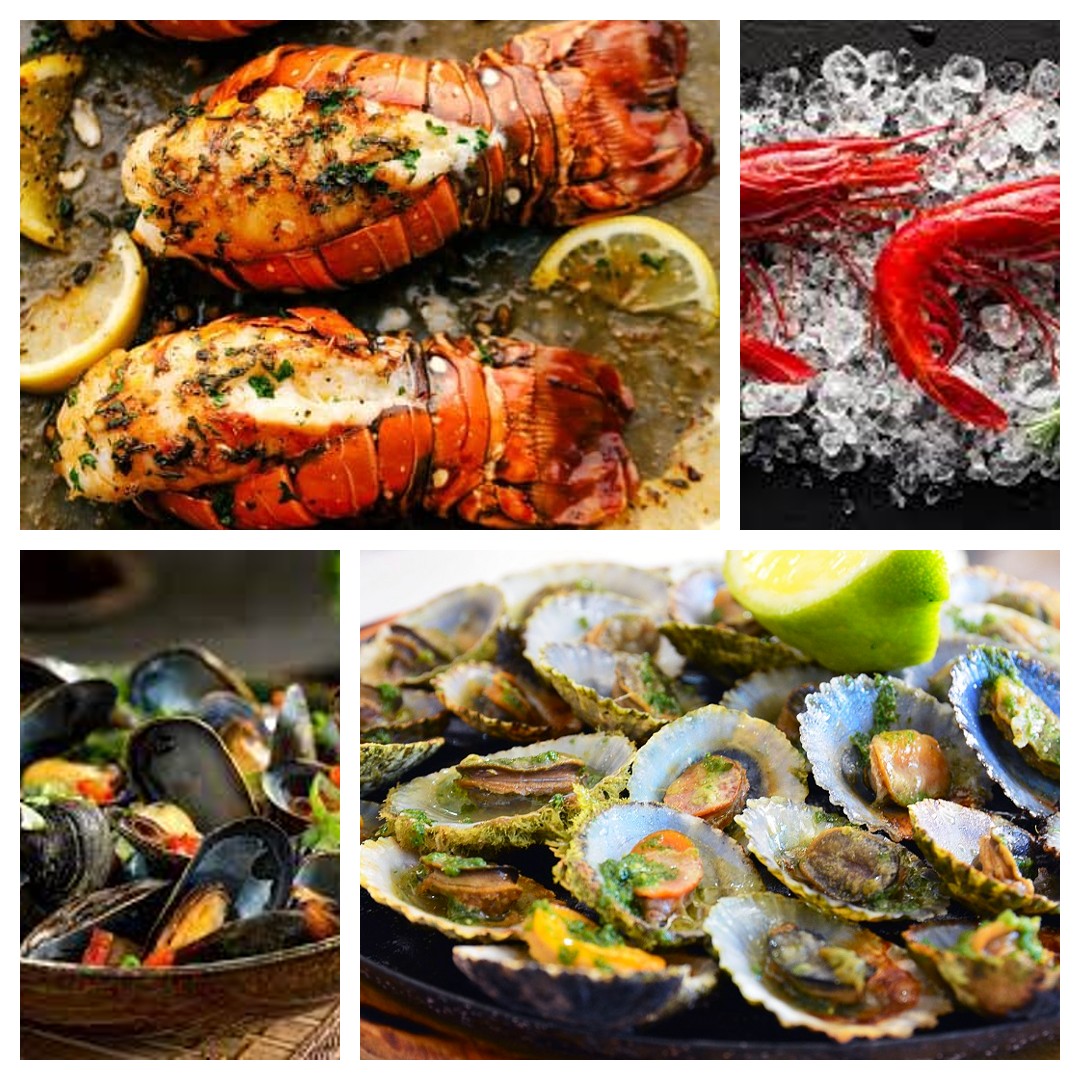
Santola Sought for popular dishes such as “santola recheada” (a paté with the meat, egg, pickles, and a series of condiments) or the famous “santola no carro” (a santola paté with corn broa, onion, spices, and port wine). Get your hands dirty with this amazing dish. We assure you that you’ll be licking your fingers clean at the end.
Oysters (Ostras portuguesas) Portuguese have always produced oysters and then exported them to (drum roll, please)… France! That’s right! The French are big consumers of oysters and the premium quality oysters they consume are produced in Portugal. The cold waters of the Atlantic make oysters particularly flavorful. Savor a fresh Portuguese oyster, paired with a high-quality espumante.
Bean Clam (Conquilha) Little clams that make a fine starter, lunch, or main course. Found in abundance on the shores of the Algarve and the coast of Alentejo.
Rose Shrimp (Gambas) A medium-sized shrimp that can be eaten raw. Found in the deep waters of the Portuguese coast or at a cheaper shrimp production from aquaculture. Without “gambas” we wouldn’t have the very typical “feijoada de marisco” and that would be very sad.
Lobster (Lagosta)The cold waters of the Atlantic make lobster’s meat sweeter and, because of that, many consider lagosta as the queen of Portuguese seafood. The truth is: you can’t beat the wow factor when serving a whole cooked lobster to a customer’s table.
Lavagante Meet lobster’s cousin: the lavagante. Its tender and sweet meat make it one of the most delicious examples of Portuguese seafood. Shines as a solo artist in the “arroz de lavagante” (rice), which is quite expensive but an absolute delight.
Limpet (Lapas) People either love them or hate them, but one cannot remain indifferent to lapas. A salty succulent snack that has little impact on the environment.
Velvet Crab (Navalheiras) Navalheiras make a gastronomer’s stomach tingle in excitement. It feeds mainly on brown algae, bivalves, and crustaceans, and its meat is sweet, velvety, and absolutely delicious. A seafood lover’s dream come true!
Sea Urchin (Ouriço do mar) If you like caviar, you’ll love sea urchin (also known as Portuguese caviar). A fresh and ocean flavor with a creamy texture. Salty but not overly salty. It tastes like the ocean without being fishy.
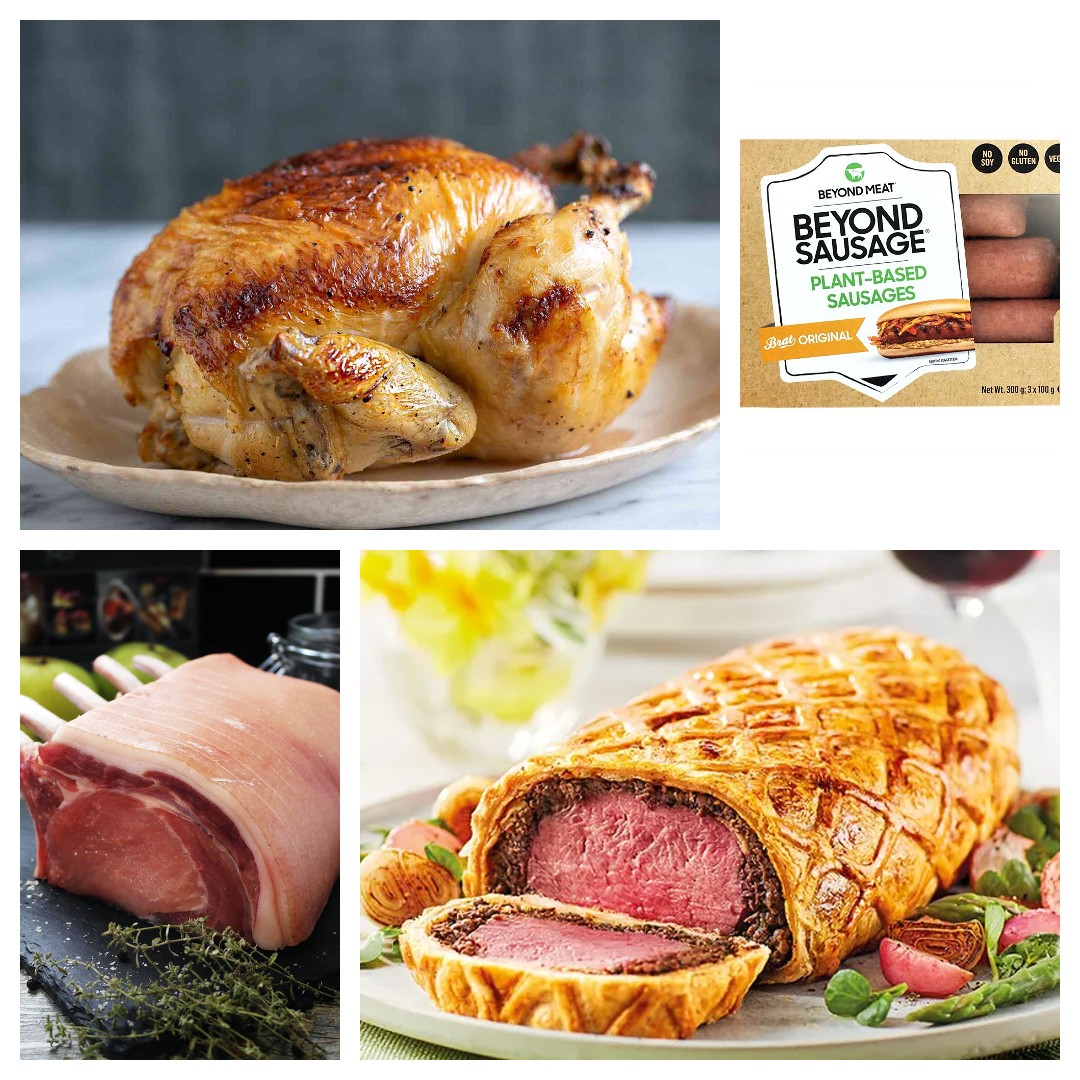
Stocking up the villa - shopping list - Fine cuts of meat
Fine cuts of meat: Stock premium cuts of beef, lamb, and poultry, sourced from reputable suppliers.
Try The Natural Meat Co in Almancil - Location Cruz Galvao - CX Postal 200, 8135-907 Almancil -
Algarve, Portugal.
Try Boutique da Carne - a local butchers to Villa Cascata - Location Av. 12 de Julho 170T, Ferreiras, Portugal.
It’s a toss-up between Bacalhau (Portuguese codfish) and Pork meat when it comes to lunch or dinner, as both are heavily favoured over other types of fish and meat. Although the West Coast of Portugal is surrounded by the Atlantic Ocean, you would be forgiven for thinking that fish is cheaper than meat and more commonly devoured by the locals. On the contrary, pork is cheaper to buy than nearly all types of fish and meats in Portugal (except for sardines), and therefore, the Portuguese people created loads of tasty pork dishes.
Porco Preto Black pig is a speciality in the Alentejo region of Portugal. The pigs are fed a diet of acorns, which gives the meat a unique flavour. Visitors to the region can enjoy the various Alentejano black pig dishes at many restaurants and drink their delicious Alentejo wines.
Sausages, Portugal is also famous for its sausages. There are many different types of sausage made in Portugal, including:
Chouriço, a spicy sausage typically made with spices like paprika.
Morcela, a slightly crumbly black sausage made with pig’s blood, spices, and meat (don’t let the pig’s blood put you off – this sausage is delicious).
Farinheira, a soft sausage made with flour, pork fat, garlic, and white wine.
Thinking about a BBQ then read our Villa Cascatas guide to the perfect BBQ.
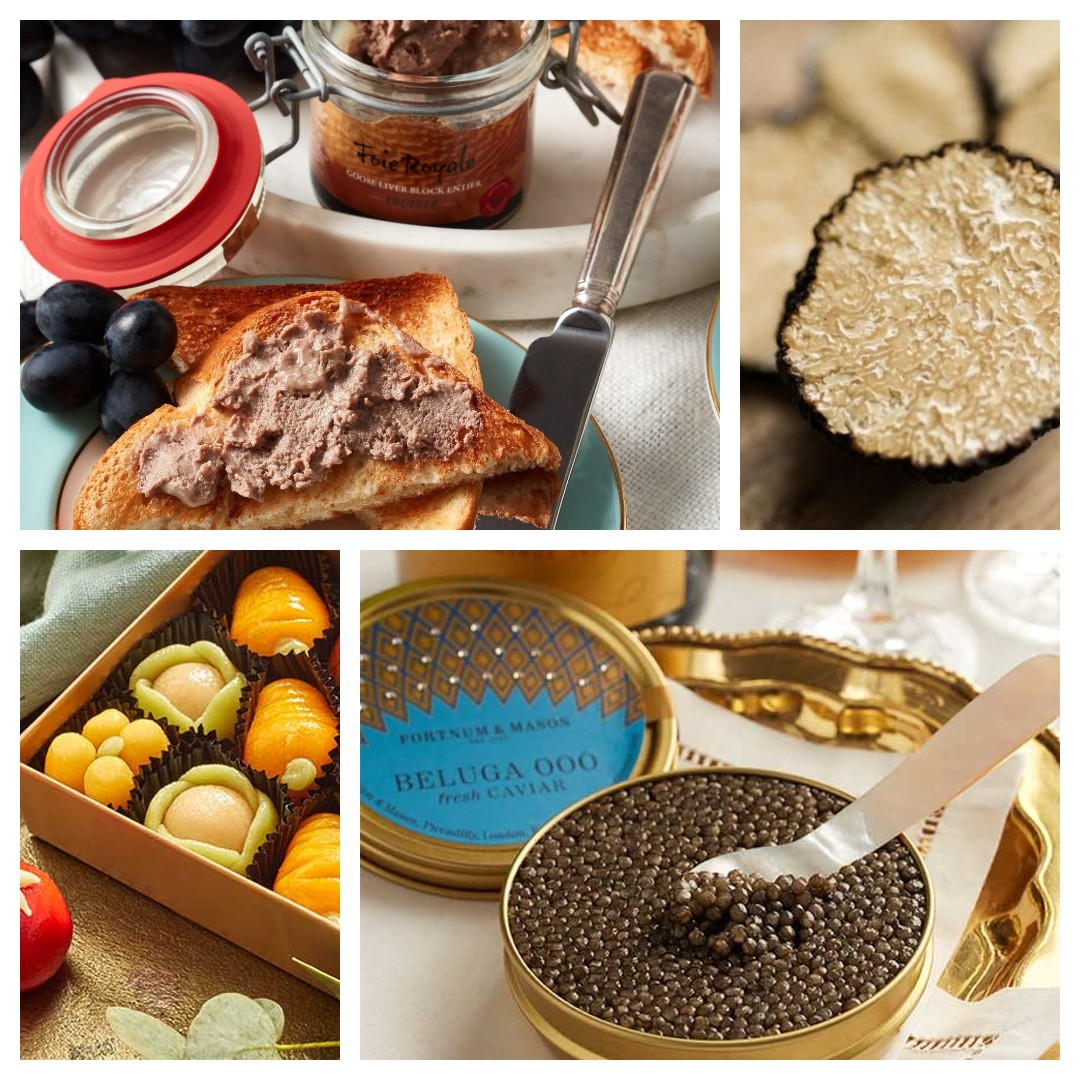
Stocking up the villa - shopping list - Delicacies and speciality items
International cuisine ingredients: Offer a variety of international ingredients to cater to different culinary preferences, such as sushi-grade fish, exotic spices, and specialty sauces.
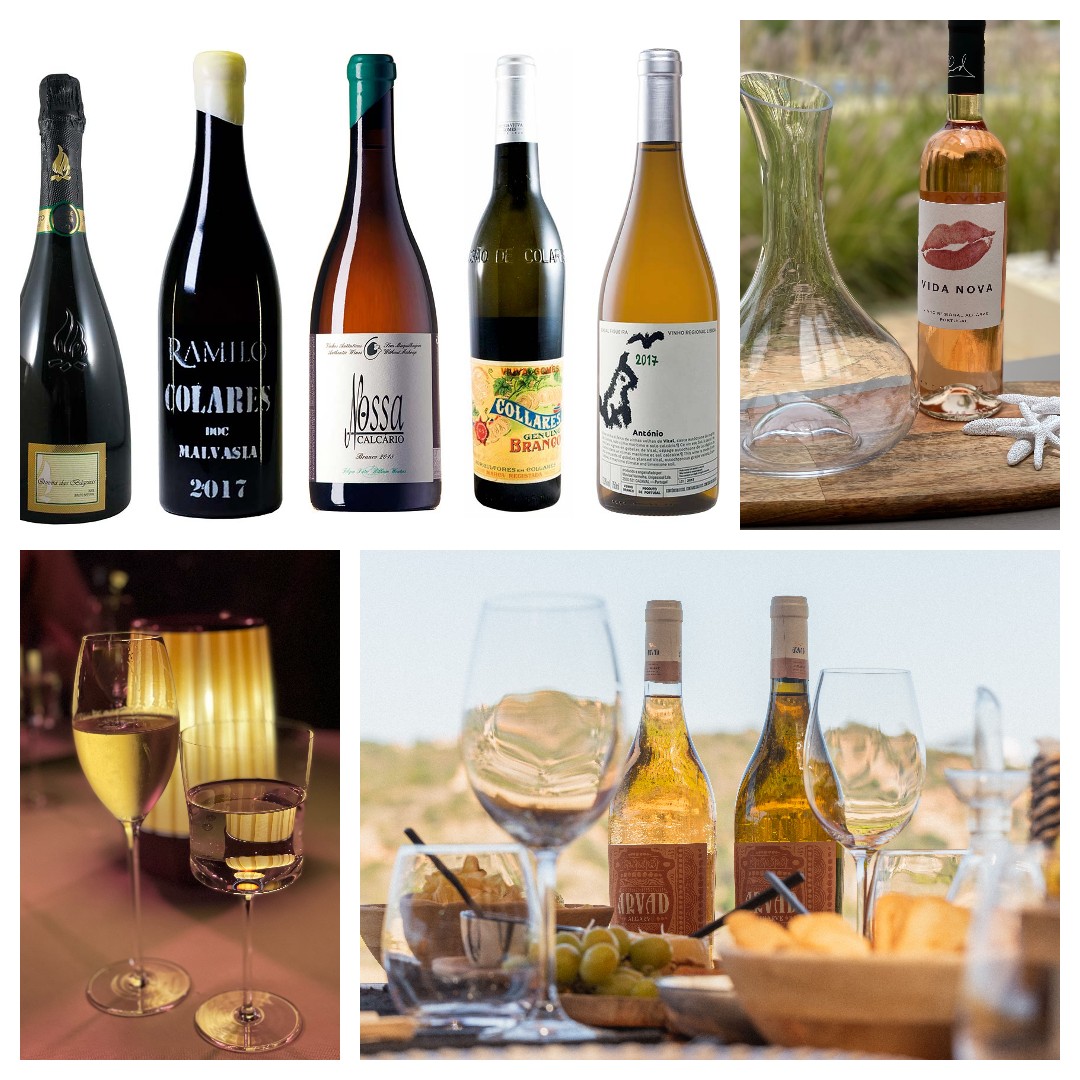
Stocking up the villa - shopping list - Beverages, red, red wine...and cider
Fine wines: Now is your chance to try Portuguese green wine a light and slightly sparkling wine from Northern Portugal, it is always a crowd pleaser and especially in summer, but also be sure to try the reds from Portugal’s most popular wine regions: The Douro and The Alentejo are two good places to start. Stock up on an assortment of red, white, and sparkling wines from renowned vineyards and regions around the Algarve. Take in a wine tour and buy a few bottles of your favourites!
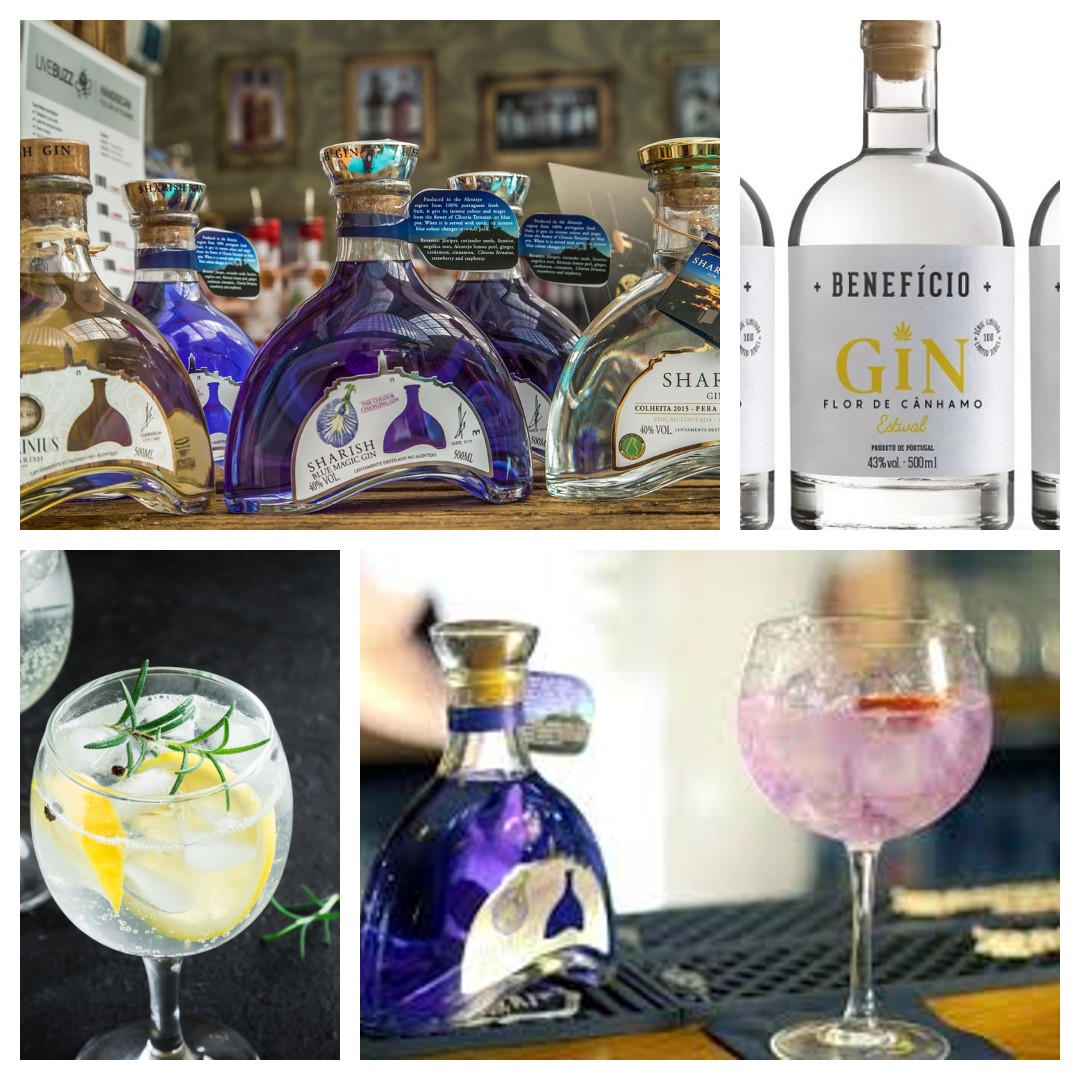
Stocking up the villa - shopping list - Premium Spirits
Premium spirits: Provide a selection of high-quality spirits, including whiskey, vodka, gin, rum, and tequila, along with mixers and garnishes. Why not try some of the Portuguese gins like Sharish?
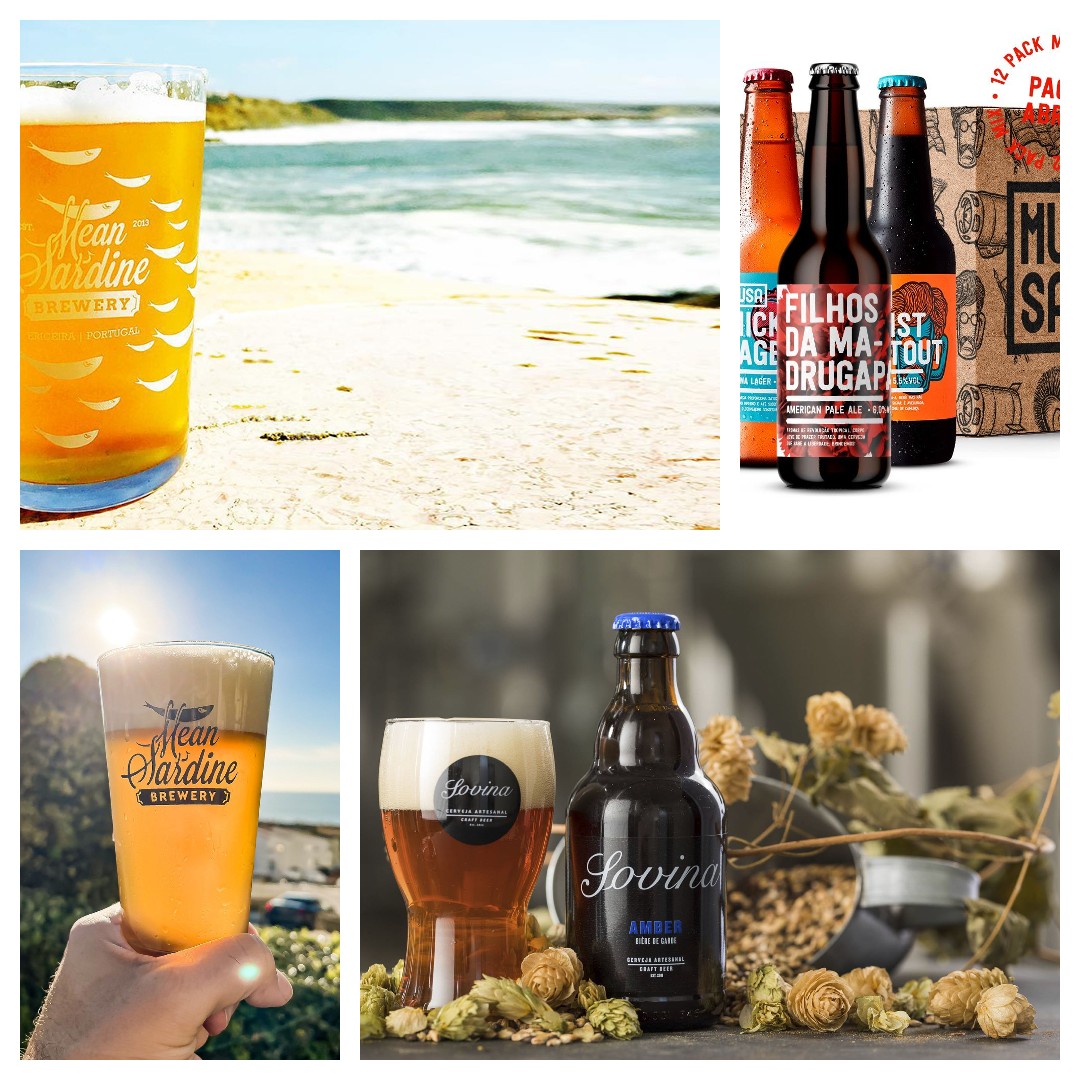
Stocking up the villa - shopping list - Craft Beers
Craft beers: Include a range of craft beers, both local and international, to offer a diverse beer selection. Portugal has a small, but rapidly growing, craft beer scene. Craft beer (cerveja artesanal) is nowhere near as popular here as it is in other countries like Germany, the UK, and the USA. Portuguese bars traditionally tend to serve one of two Portuguese beers, Super Bock or Sagres, and if you want craft beer, you’ll really have to look hard to find it.
Sovina: Produced in trendy Porto, this is Portugal’s first craft beer. Sovina produces 5 regular beers – Amber, Helles, IPA, Stout, and Wheat – as well as a few seasonal specials like their Christmas beer, a Helles Bock (springtime) and a wine barrel-matured Vintage Amber.
Musa: Musa beers are easily recognisable thanks to their funky branding and fun names: Mick Lager (a hoppy lager), Red Zeppelin Ale (red session IPA), Born in the IPA (Indian Pale Ale), and Twist and Stout (Stout).
Mean Sardine: Probably the brand with the coolest name, Ericeira-based Mean Sardine produces a number of different beers. Their most popular is probably Amura, an American Pale Ale, but it’s also worth trying Voragem (Black IPA), Zagaia (Abbey Dubbel), A Walk in Madeira (IPA), and Salema (Witbier).
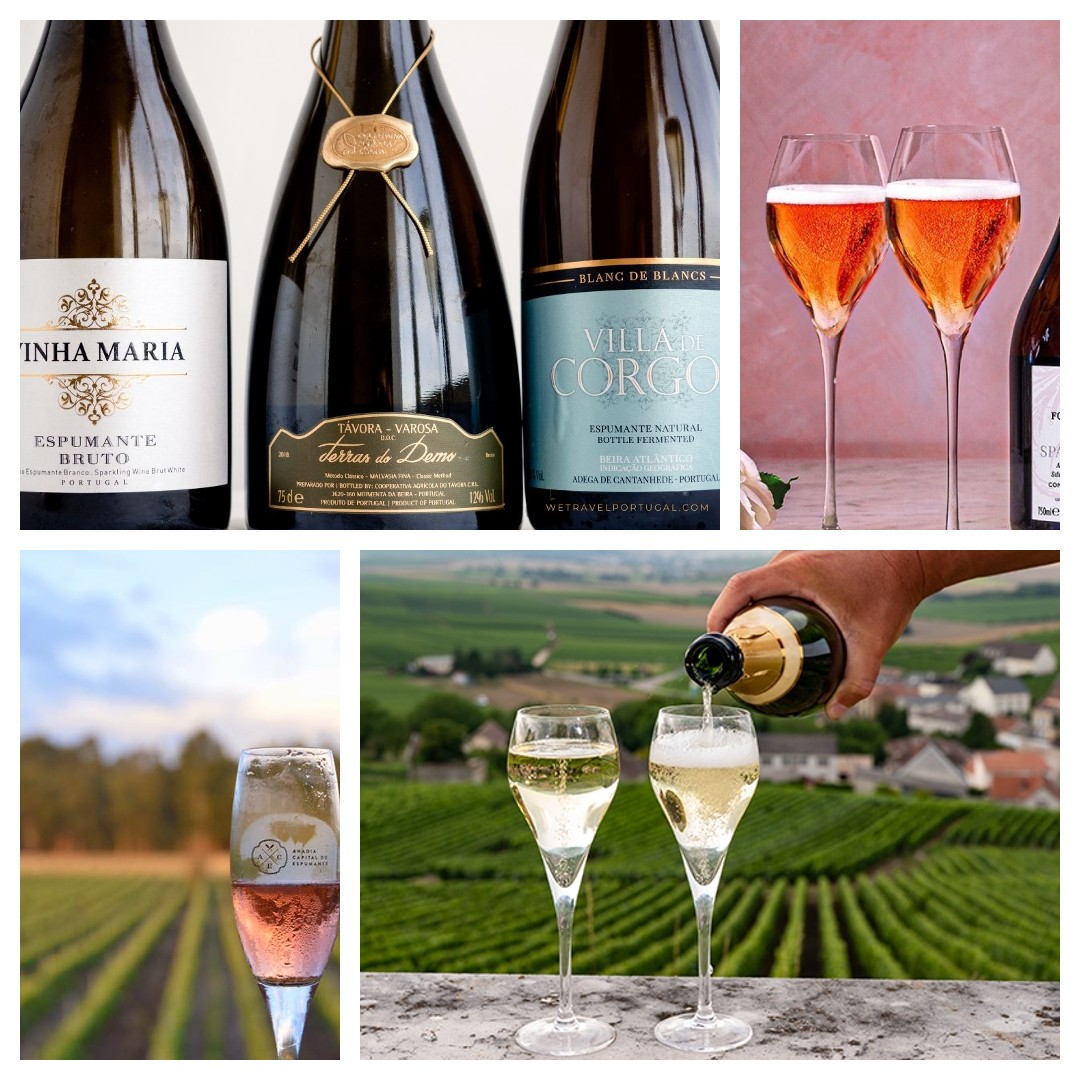
Stocking up the villa - shopping list - Champagne
Champagne: Celebrate your holiday with a glass of champagne, we must admit, Portugal does not necessarily come top of mind when thinking about bubbly.
Espumante (pronounced ‘esh-pu-man-te’) is the Portuguese term for sparkling wine and it is produced throughout the country (however surprising that may be!).
From the Vinho Verde DOC in the north west, to the almost centrally located Duoro, to Bairrada and further south to Alentejo, there is Espumante to be found in this coastal nation. This is different than in neighbouring Spain, where Cava production is limited to the (somewhat) cooler climate Catalunya and is regulated by one DOC (Espumante is permitted across many DOCs in Portugal, with varying standards).
Stocking up the villa - shopping list - Non-alcoholic options
Non-alcoholic options: Remember to stock a variety of non-alcoholic beverages, such as artisanal juices, sparkling water, and gourmet teas and coffees.
Espresso is a beloved beverage in Portugal, consumed after meals or just on the go. Try some of the finest brands available, including Sical. Premium loose leaf tea is, sustainably grown on a historic plantation in the Azores. You’ll also find traditional bagged tea in green and black varieties.
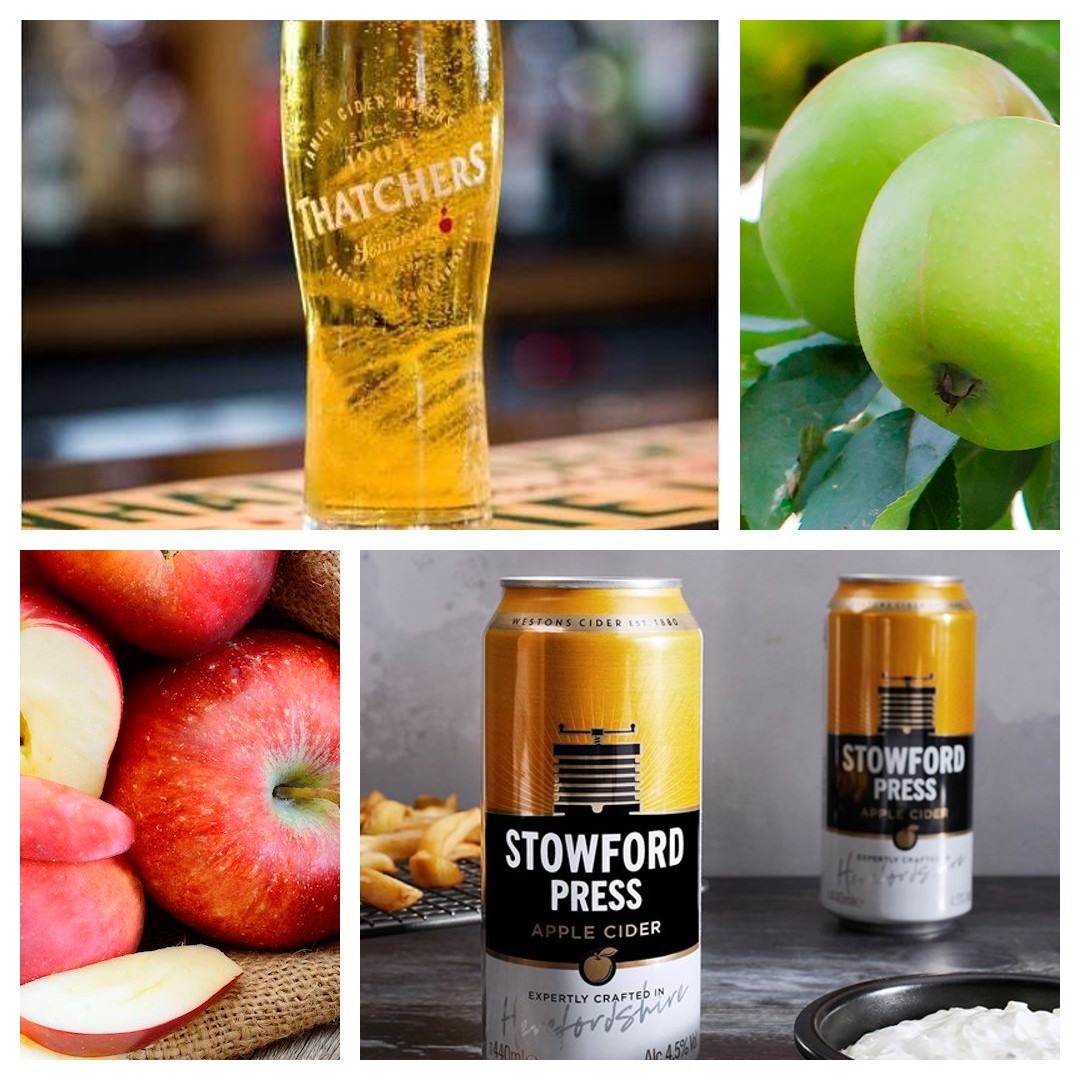
Stocking up the villa - shopping list - Cider
Cider:Portugal is a country of good apples and a lot of variety. There are more and more producers creating their fermented apple to produce cider - a drink that can go from very sweet to very acid, with low alcohol content.
And given the increase in the number of consumers who drink cider in Portugal since 2015, it was looking at this data that some Portuguese companies started to innovate on producing real cider, made with 100% apple juice.
This is the case of the Letra, Musa and Sidra Alfa brands that helped bring the Portuguese craft cider revolution to stay and which today we present as part of the new products in our store.
Artisanal ciders are on the rise and have come to stay in the category of alcoholic beverages and nothing is more fair than having the high profile in our portfolio to bring even more of Portugal to the world.
If none of the above appeal, then Stowford Press and Thatchers Gold is available in Apolonia!
Stocking up the villa - shopping list - Customised minibar
Customised minibar: Consider creating a minibar tailored to guest preferences, including their favorite spirits, mixers, and snacks.
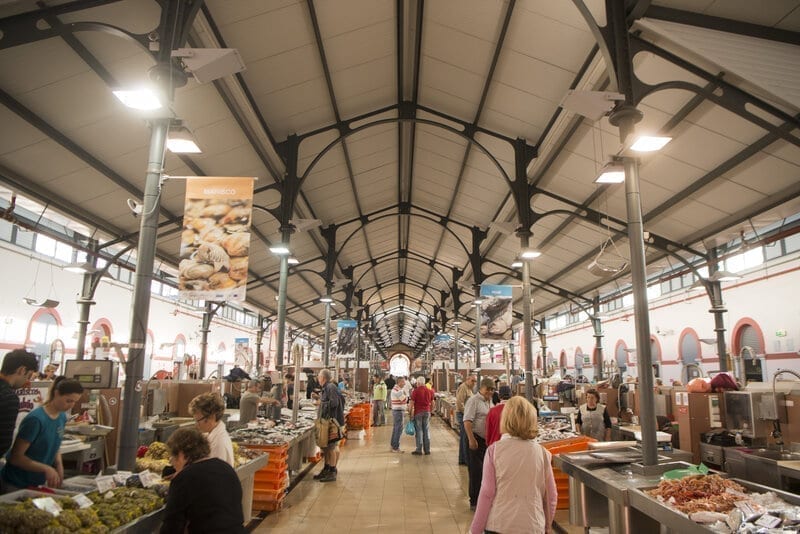
Stocking up the villa - Essential shopping in the Algarve
When it comes to essential food shopping in the Algarve region, you'll find a wide range of options available to meet your needs. The Algarve is a popular tourist destination in Portugal and offers a variety of supermarkets, local markets, and specialty stores.
Local Markets: Visiting local markets is a great way to experience the Algarve's vibrant food culture and support local producers. Here you can find fresh fruits, vegetables, fish, meat, cheese, and other regional products. Loulé Market is one of the most famous and largest markets in the Algarve, held every Saturday morning. Other notable markets include Faro Municipal Market, Albufeira Municipal Market, and Olhão Municipal Market.
Fish and Seafood: The Algarve is renowned for its fresh seafood. You can find local fish markets in coastal towns and villages where you can buy a variety of fresh fish, such as sardines, sea bass, mackerel, and octopus. Places like Olhão, Portimão, and Quarteira have fish markets with a wide selection.
Bakery Items: Portuguese bakeries are known for their delicious bread, pastries, and cakes. Look for local bakeries where you can find traditional Portuguese bread, including the popular "pão alentejano" or "pão de forma" (sandwich bread). Don't miss out on trying regional pastries like pastéis de nata (custard tarts) or regional specialties like Dom Rodrigo.
Local Products: The Algarve produces some unique regional products that are worth trying. These include locally produced olive oil, honey, figs, almonds, carob products, and traditional sausages like chouriço or linguiça. Look for specialty stores or local markets to find these products.
Remember to check the opening hours of supermarkets and markets as they may vary. Additionally, if you're staying in self-catering accommodation, it's a good idea to bring reusable bags or purchase them at the store, as single-use plastic bags are subject to an extra charge in Portugal. Enjoy your food shopping experience in the Algarve!
Book your stay at Villa Cascata
Email us on: holiday@villacascata.com

